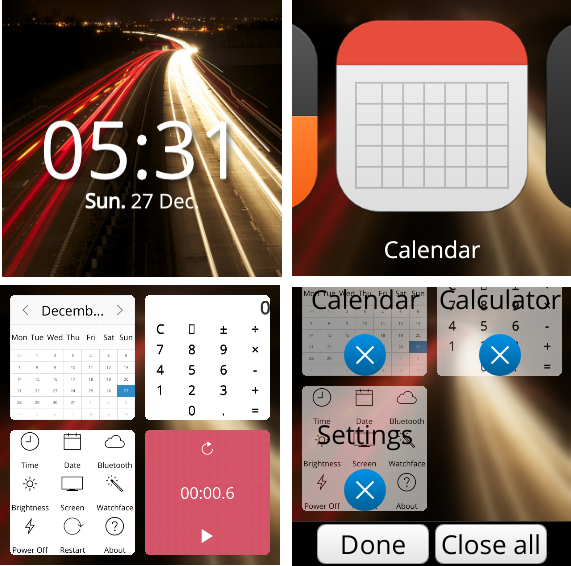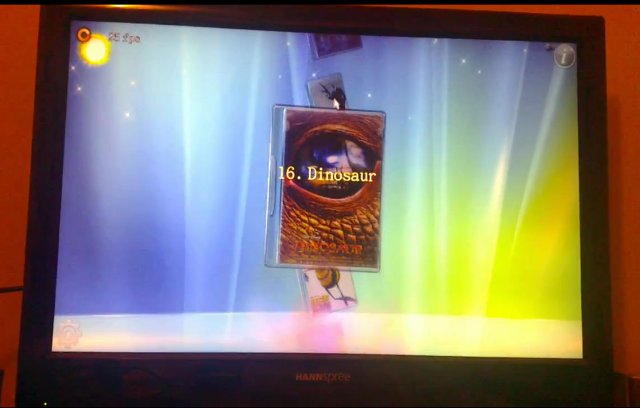If you own an Android or Android Wear smartwatch, but would like more control over its functionality or simply prefer a truly open source operating systems for your watch, AsteroidOS could be the answer. Like alternative mobile operating systems such as Sailfish OS or Ubuntu Touch, AsteroidOS leverages existing Android drivers via libhybris library, and the user interface relies on Qt5 and QML running on top of OpenEmbedded, while Bluetooth is handled by BlueZ 5 library. There’s no company behind the project, and it is purely community driven. Currently only the LG G watch is supported, and you can give AsteroidOS a try by following the instructions. The Wiki provides information about the boot process, how to build the OS, creating an Qt5/QML app. etc.. and also explains how to port AsteroidOS to other watches, so if the project gets traction more devices will be supported. There are several ways […]
FOSDEM 2016 Schedule – Open Source Hardware and Software Event in Europe
FOSDEM (Free and Open Source Software Developers’ European Meeting) is a 2-day event that usually takes place on the first week-end of February in Brussels, but this year it will be on January 30-31. The event brings thousands of developers, hackers, and other person interested in open source technology who present their projects and share ideas. FOSDEM 2016 schedule is now available, and There will be 557 speakers, 612 events, and 50 tracks this year including 7 main tracks: Distros, Enterprise, Hardware, Communications, Miscellaneous, Office, Systems Administration, and Virtualization. So I’ve had a look at some of the talks, especially out of “Embedded, Mobile and Automotive” and “IoT” devrooms, and prepared my own virtual schedule although I won’t be able to attend. Saturday 10:30 – 10:55 – MIPS, the other side of the embedded by Alexjan Carraturo For many years MIPS processors have been involved in the embedded market, particularly […]
How to Use Libhybris and Android GPU Libraries with Mer (Linux) on the Cubieboard
You may have heard about libhybris, a library that cleverly loads Android HW adaptations and convert calls from bionic to glibc. One of the greatest achievement of this library is to allow Android GPU drivers to be used with Linux, and is notably used by Canonical, although they did not write it, for Ubuntu 14.04 which will be compatible with any recent Android smartphones or tablets. One way to get started with libhybris is to port a device to Ubuntu Touch, but this may take a while. However, I’ve found a faster and easier way to play with libhybris thanks to Martin Brook (vgrade) who wrote a tutorial on how to use libhybris with Mer on the Cubieboard. Mer is an open source mobile Linux distribution powered by Qt/QML and HTML5, that’s born from the ashes of Meego, and is now used in the upcoming Sailfish OS. You’ll need to […]
Libhybris Let You Use Android Drivers & HW Libraries in Linux
One of the main issues with Linux on ARM is the lack of proper GPU drivers for the platform, as most silicon manufacturers now only focus on Android drivers which are not compatible with the Linux kernel, because Android is based on Bionic C library, whereas Linux is based on glibc or its variants. There are two ways to solve this issue: Open Source GPU drivers. This would be the ideal solution, as you would just be able to cross-compile the drivers for the proper, as well as fix bugs without having to ask the silicon manufacturer to fix the driver for you. Bionic to Glibc library. Such library acts like libdl, and allows to load Bionic library and overrides some symbols from bionic with glibc based ones. This is exactly what libhybris does. Ubuntu Touch is capable of using Android GPU drivers to run Ubuntu thanks to this library, […]






